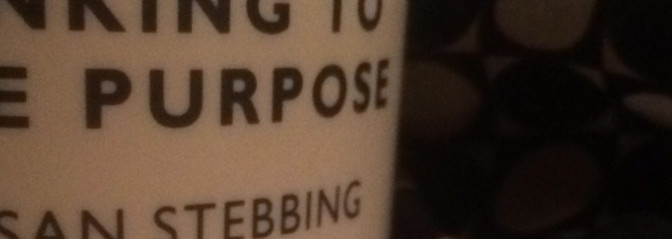Regular readers here or on twitter, may notice the new-look.
I’m moving away from The Amateur Book Blogger banner, and will be posting simply as me, as I go on. The start of the summer holidays seemed as good a day as any, to saunter out into the sunshine on my own. [I may even see if it’s worth updating my resultant twitter handle @TheABB]. The reason? This week, the View From Here Magazine announced it will be closing on November 1st, 2014. After seven years on the writing team, it is not only the end of an era, but perhaps the start of a something new.
I started on the comms side, announcing writing events and industry news, and later moved into interviews. It’s been an amazing experience. Editor Mike French was a great remote-mentor. We’ve met only once, at the launch of his latest novel, Convergence, in The Dandelion Trilogy. Mike both enabled and encouraged me to interview some great writers, editors, scouts and publishers, every quarter. I learned something new each time, from every contribution, and had great fun. All of which I enjoyed, but some stand out in the memory more than others, and every one was unique.
I travelled to The London Book Fair in 2010, the year the Icelandic volcanic ash prevented many traveling from abroad by plane. The resulting bonus, many people’s meeting schedules became unexpectedly less full. I got squeezed in to film a serendipitous interview with Jamie Byng at Canongate and spoke with Helen Garnons-Williams, which led to producing a three part interview with her, the then newly head-hunted Editorial Director for Fiction at Bloomsbury UK.
Thank you to all whom I have interviewed since 2006, but also to readers and fellow unpublished writers who supported me, the team, and made the community at The View From Here what it is. With eclectic tastes, I learned much on writing, but also enjoyed the art of the creative collective.
The most recent interview I did for them, was here, with Isabel Allende. In her wide ranging career, it was hard to know what to ask and how to narrow it down, but one thing stays with me, in all she said, on the role of a writer:
“Writers have no obligation to comply with the official story or the official version, their only obligation is with their own consciousness. Honesty above all.”
The other part of my writing recently has been more akin to her engagement in politics and civil society. I’ve been on twitter really only for the last nine months, throughout the difficult pregnancy of care.data, pronounced care [dot] data. If you missed it, that’s the government proposed scheme to suck up our GP medical records, merge them with data already held at the central Health and Information Centre from our hospital care, and then use the new, richer record for commissioning purposes and potentially more, as yet undefined. Since our hospital and other health sourced-data is already sold to private companies and will continue to be so in future, but without having asked for informed consent, I’ve been a very skeptical critic and lay voice for positive changes for these wide secondary uses. [In case you’ve landed here for the first time, I’ve a background in tech database implementations, communications and change, and I took it upon myself to fully understand and follow the subject, a year ago when I came across the topic online, by accident.]
It looks now, as though some improvements on past failings will happen, but much remains undefined in detail, and as we all know, that’s where the devil likes to sup. I look forward to seeing some of the recently discussed changes and definitions in the Care Act, for example, becoming concrete.
So, that’s the reason for the insignificant changes on my part, and should I explain the image? I’ve chosen my favourite coffee mug for my header photo, with my favourite scarf. I use both often. The latter, reminds me a little of Bridget Riley’s op art. As a retro fan that appeals to me. The former, depicts the cover of Susan Stebbing’s most popular work Thinking to some purpose (1939) which was described on the cover of the first Pelican Books edition as being:
“A manual of first-aid to clear thinking, showing how to detect illogicalities in other people’s mental processes and how to avoid them in our own”
The work arose out of a synopsis she wrote for a series of radio broadcasts intended for the BBC. Published on the eve of the Second World War, Stebbing wrote:
“There is an urgent need to-day for the citizens of a democracy to think well. It is not enough to have freedom of the Press and parliamentary institutions. Our difficulties are due partly to our own stupidity, partly to the exploitation of that stupidity, and partly to our own prejudices and personal desires.”
Her words seem very timely.
To borrow from Wikipedia here: “This metaphor seems to me to be appropriate, because potted thinking is easily accepted, is concentrated in form, and has lost the vitamins essential to mental nourishment. You will notice that I have continued the metaphor by using the word ‘vitamins.’ Do not accept the metaphor too hastily: it must be expanded.”
I wrote about use of language and the need for common sense in its use around our health, as well as food marketing, in a previous post. But on the book, Professor Stebbing [British philosopher 1885- 1943] went on to say:
“Potted meat is sometimes a convenient form of food; it may be tasty, it contains some nourishment. But its nutritive value is not equivalent to that of the fresh meat from which it was potted. Also, it must have originally been made from fresh meat, and must not be allowed to grow stale. Similarly a potted belief is convenient; it can be stated briefly, sometimes also in a snappy manner likely to attract attention. A potted belief should be the outcome of a belief that is not potted. It should not be held on to when circumstances have changed and new factors have come to light. We should not allow our habits of thought to close our minds, nor rely upon catch-words to save ourselves from the labour of thinking. Vitamins are essential for the natural growth of our bodies; the critical questioning at times of our potted beliefs is necessary for the development of our capacity to think to some purpose.”
So here’s to that, my ‘critical questioning’ may have shifted from one arena into another, but I hope I continue ‘thinking to some purpose’.


